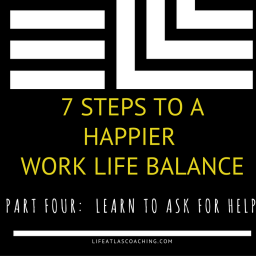
Earlier this week I was talking with a group of women who run their own businesses about what they did and why they did it. The nature and size of their businesses, and their ambitions financially, varied widely. But to a man (well, woman), they all said that the decision to start their own business had been driven, in part, by a desire to take control of their work-life balance.
Most of my fellow businesswomen felt they had successfully managed to achieve a good work life balance, and certainly a happier one than they’d had in employment – even though on the whole they weren’t actually working any fewer hours than they had when they’d been employed.
The stark reality was pointed out by some: that setting up and running your own business takes a lot of work, and that means putting the hours in and doing all sorts of things that take you right outside your comfort zone, particularly in the beginning. The fact is, if you want your business to be financially successful you still need to treat it like a job – and not, generally speaking, a part time one; even if the nature of the work may sometimes feel more like a hobby because you love it so much.
Many of those I was talking to said they were actually working the same, or more, hours each week than they had before, so we reflected on what it actually was that led to our feeling so much better about our work-life balance. The answer, it seems is two-fold:
- Our work is doing something we really love and care about
- We have a lot more flexibility in terms of exactly when and, in some cases, how and where, we work
The first reinforced what has become a familiar story to me and, in fact, I have really come to believe that “work-life balance” is just a synonym for “happiness”: it stands to reason, after all, that doing work you love will make all the difference to how you feel about, well, not just work but your life in general.
The second reminded me of a conversation I’d had with my boss in a previous role, when I was negotiating my return to work after maternity leave a few years ago. The turning point in that conversation, for both of us, was when I said: “This isn’t about working less – I’m not concerned about working less. I just want to have the flexibility to be able to pick my children up from school twice a week and be able to move those days around sometimes, whether it’s for the company’s benefit because you need me at those times, or for my benefit because my children need me for something specific on a different day one particular week”.
That had been like a lightbulb switching on in my brain. This flexibility I was after, that would make all the difference to being able to achieve a good work life balance, was all about having permission to have freedom to choose. Freedom to prioritise. Because what I had realised was that with that freedom came a lifting of guilt: when I was able to genuinely and logically prioritise whatever was actually most important at any given time – whether that was my children’s needs or business needs – I could put the most important things first and juggle everything else around them. And, of course, in prioritising appropriately, I could achieve more – for me, for my children, and for the company I worked for.
My businesswomen concurred: they often chose to work during an evening, or on Sunday afternoons (it seems nearly all business owners work on Sunday afternoons!). But the point was that they could choose those as the best times for them to work. And they could also choose to take some last-minute time away from work if life dealt a curved-ball that needed seeing to, or if they had to see a doctor, or talk to a teacher about their child – or even if they simply needed to fit in something quite mundane, but which was going to cause all kinds of stressful juggling and additional travelling about if it were to be done outside normal office hours.
All of this makes me think about my experiences over the last decade as an employer, and the types of “flexible” working request I generally saw – particularly when women (because it nearly always was women, with a few notable exceptions) were returning to work from maternity leave.
Far from being genuinely flexible, the majority of “flexible working” requests were to work part-time.
Of course, in some cases this is an absolute practical need because the normal working hours of an employer and the availability of childcare hours may not match. However, it got me to thinking about the fact that, obviously, working part time simply means working fewer hours. And, while it offers regular time to do whatever it is outside of work that’s important to you, whether that’s looking after your children, taking part in a hobby or simply to take care of yourself, working part time doesn’t, in itself, offer the prized flexibility that helps free yourself from the guilt of simply not being able to put genuine priorities first.
You may achieve a better work life balance, if that’s based on the number of hours you work v the number of hours you have for other things. But without ditching the guilt, and without being able to really make the important things happen…the impact isn’t as great as you’re looking for.
This is backed up by my own research of 250 working mothers in March 2016, which showed that while those working part time were less likely to worry about the impact their work was having on their children, they felt no less guilt about how they spent their time, were just as likely to put their own needs at the bottom of the pile, they had lower self-esteem and confidence and were only very marginally less stressed than those working full time. And they tended to have additional money worries too. Although they were happier with their work-life balance than those working full time, little more than half of those working part time said they actually had managed to achieve a good work life balance.
It’s certainly harder for employers to offer genuine flexibility than to offer reduced hours. But with some creative thinking, carefully thought through boundaries, and a clear focus on outcomes rather than inputs by employers , flexibility could surely be worked into many more roles than it currently is. Flexibility both requires and fosters trust between employer and employee, and the company generally reaps the rewards of that trust in a highly engaged worker. The number of people looking for flexible working arrangements in order to remain engaged with companies and careers they love will undoubtedly increase, and I would encourage businesses of all sizes to really consider how they can allow people to work with some genuine flexibility, if they want to retain the best employees.
Otherwise, these talented women will be leaving to start their own businesses, where they can find their own balance between hard work and the flexibility to enjoy a happy life.
I’m Jo Lee, the No Stress Success Coach. I coach career professionals and business owners to achieve the personal success they want, to reduce stress and to develop a happy and successful work life balance.
I offer face to face coaching in Leicestershire, Derbyshire, Staffordshire and Birmingham and telephone or online coaching across the UK. If anything in this blog post resonates with you, and you’d like to find out more about how coaching works or what coaching with me might be like, please get in touch for an informal chat or to arrange a free initial consultation.




